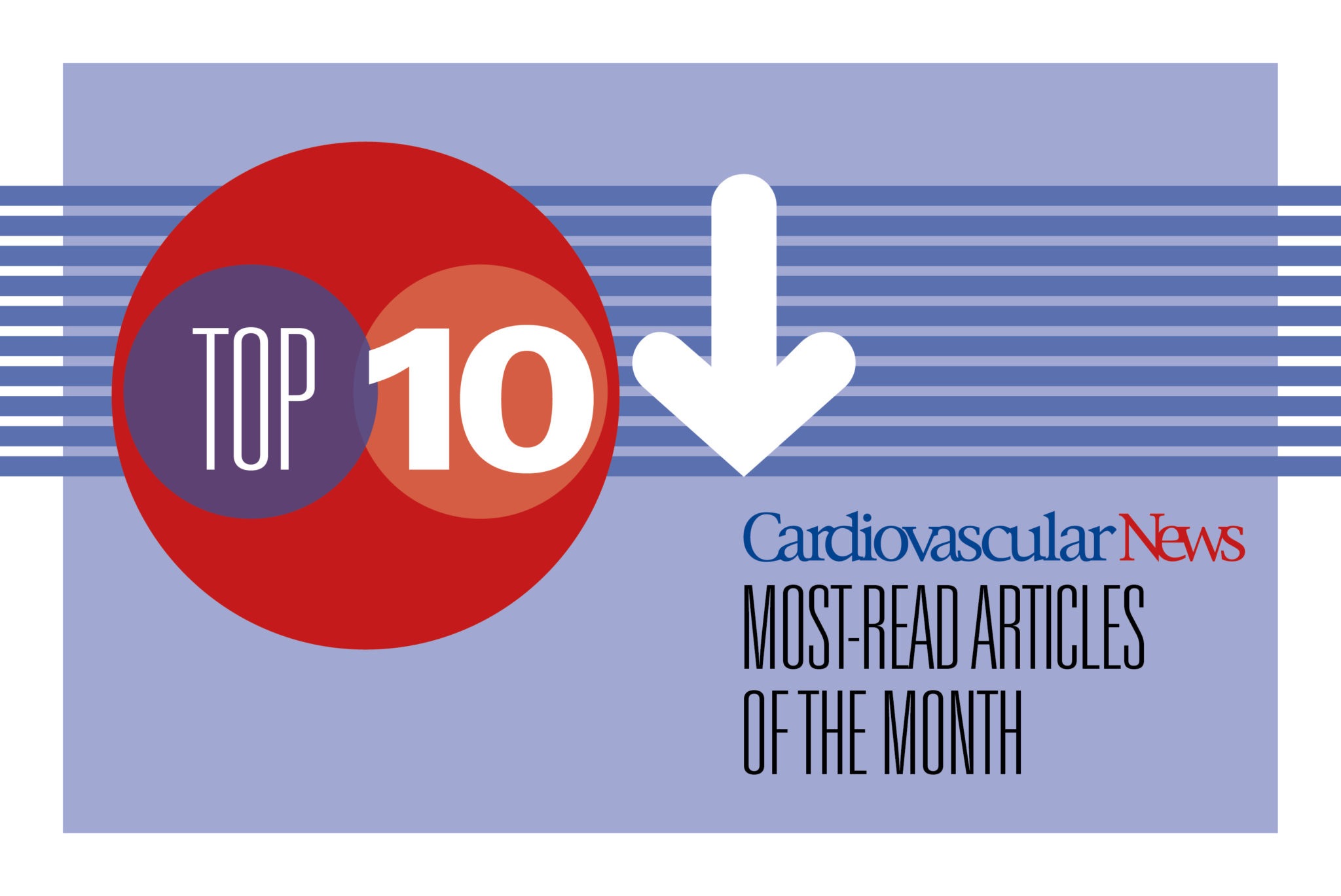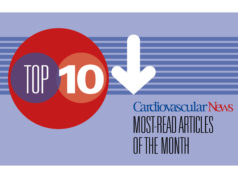 Our top 10 stories of March 2021, including: highlights from CRT 2021; converging TAVI and surgery outcomes seen in two-year PARTNER 3 results, and; a study showing the predictors of social media influence among interventional cardiologists.
Our top 10 stories of March 2021, including: highlights from CRT 2021; converging TAVI and surgery outcomes seen in two-year PARTNER 3 results, and; a study showing the predictors of social media influence among interventional cardiologists.
VIDEO: Thomas Pilgrim (Bern, Switerland) details two-year results from the BIOSTEMI randomised trial, which were presented during a late-breaking trial session at the 2021 Cardiovascular Research Technologies meeting (CRT 21 Virtual, 13 February–24 April).
Two-year outcomes of the PARTNER 3 clinical trial, in which low surgical risk aortic stenosis patients were randomised to receive either transcatheter aortic valve implantation (TAVI) or surgery, found that initial differences in death and stroke, which favour TAVI, were diminished after two years.
Lab-created heart valves implanted in young lambs were capable of growth within the recipient, a study published in Science Translational Medicine has found.
Matheen Khuddus (director of Cardiovascular Research, The Cardiac & Vascular Institute, Gainesville, USA) discusses the LightLab initiative, and how it is changing the perception of optical coherence tomography (OCT) imaging technology in the cath lab.
Men with stable coronary artery disease who receive Viagra due to impotence seem to live longer and have a lower risk of experiencing a new heart attack, a study from Karolinska Institutet, Solna, Sweden, published in the Journal of the American College of Cardiology reports.
Social media has become an important platform for promoting research within the interventional cardiology community. However, the popularity of a social media account does not necessarily reflect the academic reputation of its owner, a paper published in JACC: Cardiovascular Interventions has concluded.
Registry data charting the use of direct oral anticoagulants (DOACs) in patients receiving mechanical and bioprosthetic heart valves suggests that despite being contraindicated and off-label, respectively, there is a prevailing use of DOACs among these patients.
Five-year follow-up results from the Gore REDUCE study, assessing the Gore Cardioform or Helex septal occluder versus antiplatelet therapy in long-term recurrent stroke prevention, have been published in the March 2021 issue of The New England Journal of Medicine (NEJM). The results highlight the benefits of patent foramen ovale (PFO) closure, Gore said in a press release.
Clinical outcomes up to one year after transcatheter aortic valve implantation (TAVI) in low-risk patients with symptomatic, severe bicuspid aortic stenosis are consistent with those witnessed during early analysis, which supported the safety of TAVI in this patient group.
More than a third of female cardiologists polled in a UK survey on discrimination and sexism in the profession have reported receiving unwanted sexual comments, attention or advances from a colleague. The findings of the survey were published online this month in BMJ: Heart.












